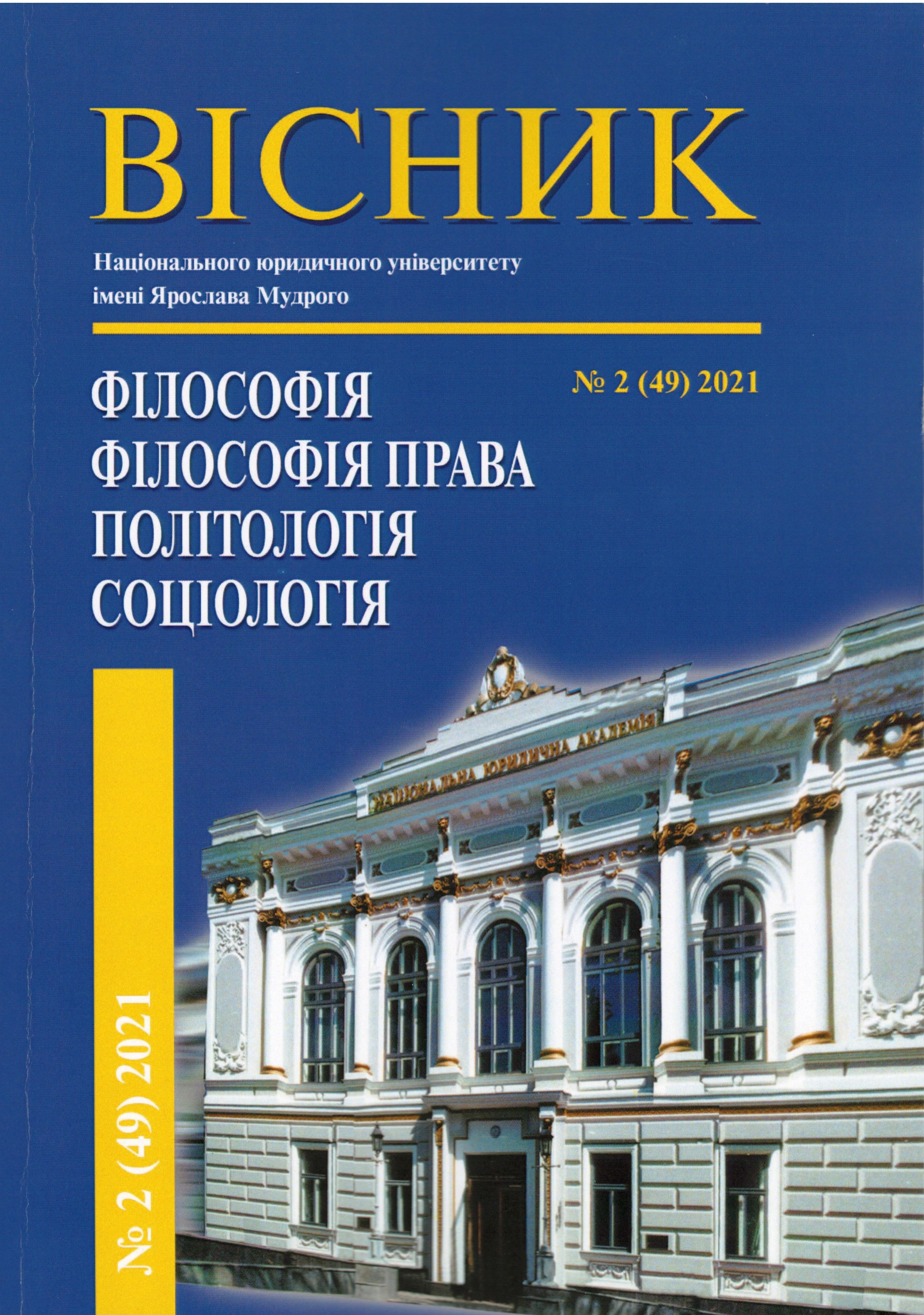ПОЛІТИЧНА ВЛАДА: АНАЛІЗ ІННОВАЦІЙНИХ ПІДХОДІВ
POLITICAL POWER: INNOVATIVE APPROACHES
Author(s): Vladyslav Igorovych AndrushkoSubject(s): Politics / Political Sciences, Governance, Sociology of Politics
Published by: Національний юридичний університет імені Ярослава Мудрого
Keywords: рower; political power; innovative approaches; cratology; postmodern;
Summary/Abstract: Problem setting. There is evidence that Political power plays a crucial role in regulating social processes. But it is also a difficult concept to understand and define.That’s why this phenomenon has been studied by many researchers using different methods and absolutely different scientific approaches, what has made it an ambigious term. It causes an actuality of synthesizing the most significant innovative concepts into unite theoretical background. Resent research and publication analysis. Previous research has established that Political power is related to Power of law. A number of cross-sectional studies suggest an association between Political power and Public governance, State Power. The issue has been a controversial and much disputed subject within the multidisciplinary field of sociological, culture logical, psychological and even linguistical researches. As a result,this concept has recently been challenged by postmodernist’s studies demonstrating its hidden features. We should notice a big number of scholars, from M. Faucault and P. Bourdieu to S. Lukes and K. Dowding, whose developments in the field of Cratology have led to a renewed interest in political power.Paper objective. The purpose of this investigation is to explore the innovative approaches to political power understanding and to give own definition of this phenomenon.Paper main body. The methodological approach taken in this study is a mixed methodology based on qualitative and quantative, theoretical and empirical studies. The overall structure of the study takes the form of two conditional parts. The first part of this paper examines the innovative approaches to general power understanding. In the section we are proving that power is based on information. The second part also begins by laying out the theoretical dimensions of the research, and looks what is political power at postmodernist’s context. In summary, information is seemed to be the most efficient power resource, because it touches each part of people existence.Conclusions of the research. So, we can confirm that political power is perceived rather as communicative, mental concept than a part of state’s institution system. In other words, now it is believed that modern power as kind of social influence is appearing from every part of social life due to its cognitive nature, but at the same time it is almost disappearing as traditional part of government structure. The result of the analysis is also proclaimed by the author’s approach to the rationalization of «political power»: «classical»(power and political power are the same), «institutional» (based on the law and the state form of political power) and «functional» (based on the information power that is aimed to political processes. The next result of the article is our political power clarifying.According to the R. Dahl’s definition and the V. Ledyaev’s classification we define political power as a «A’s possibility to construct B’s «picture of the world». So, this study seems to be relevant. In conclusion I’d like to say that this topic is perceived as inexhaustible and that theme is still so actual for further multidisciplinary researches.
Journal: Вісник НЮУ імені Ярослава Мудрого. Серія: Філософія, філософія права, політологія, соціологія
- Issue Year: 49/2021
- Issue No: 2
- Page Range: 153-168
- Page Count: 16
- Language: Ukrainian

